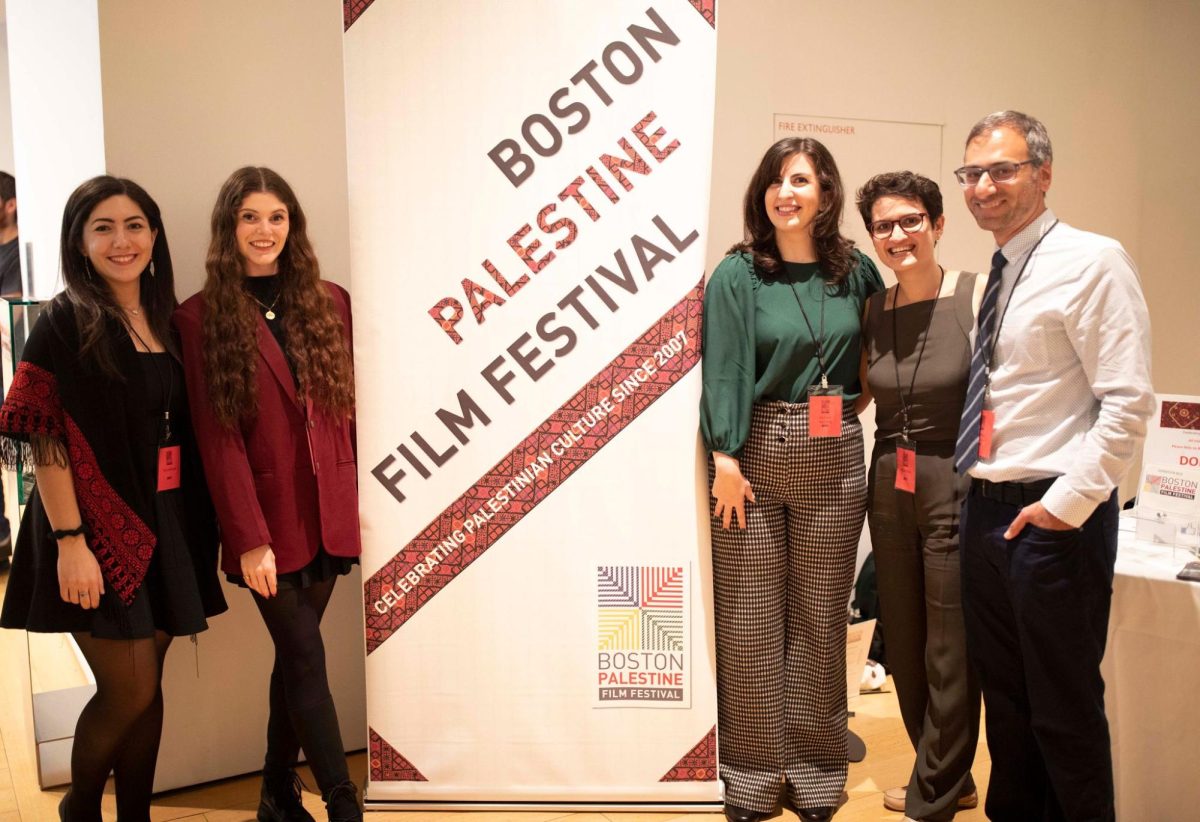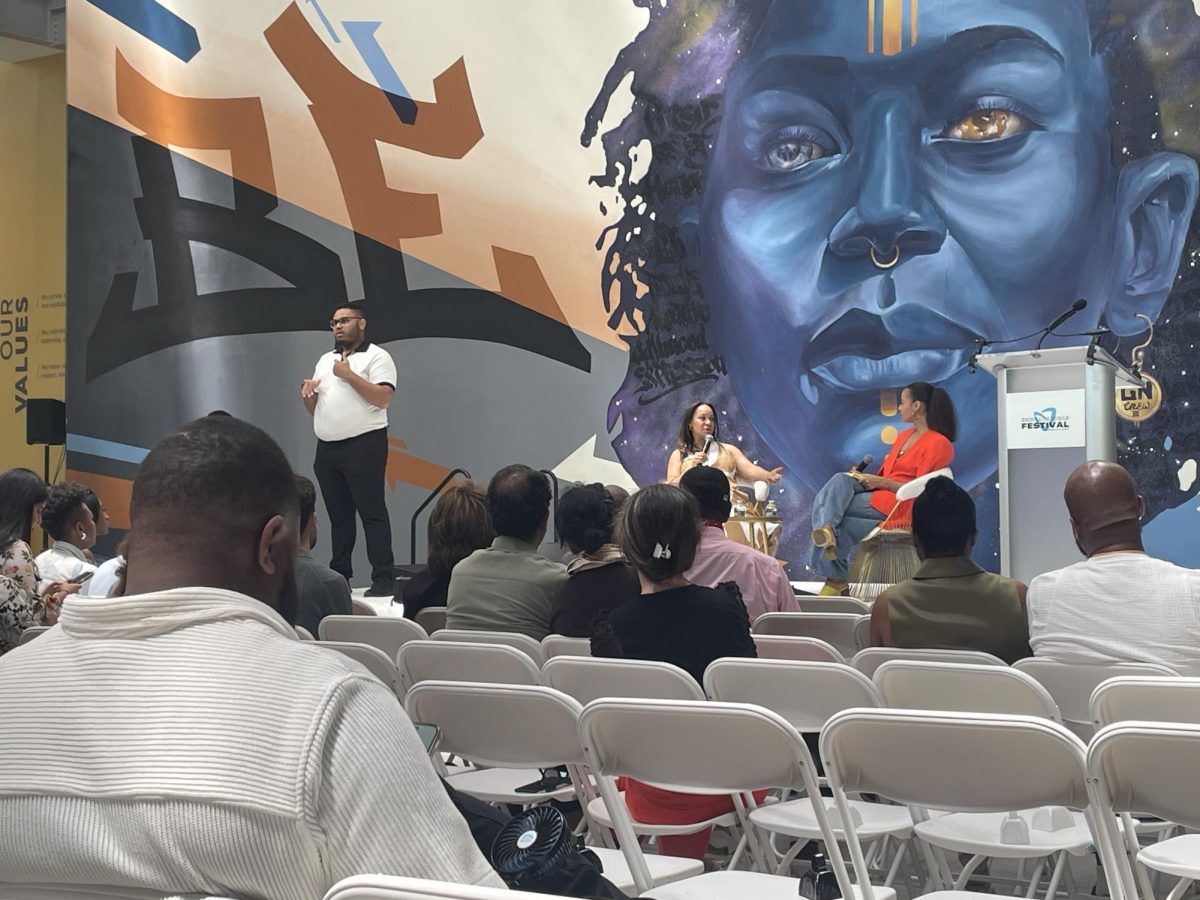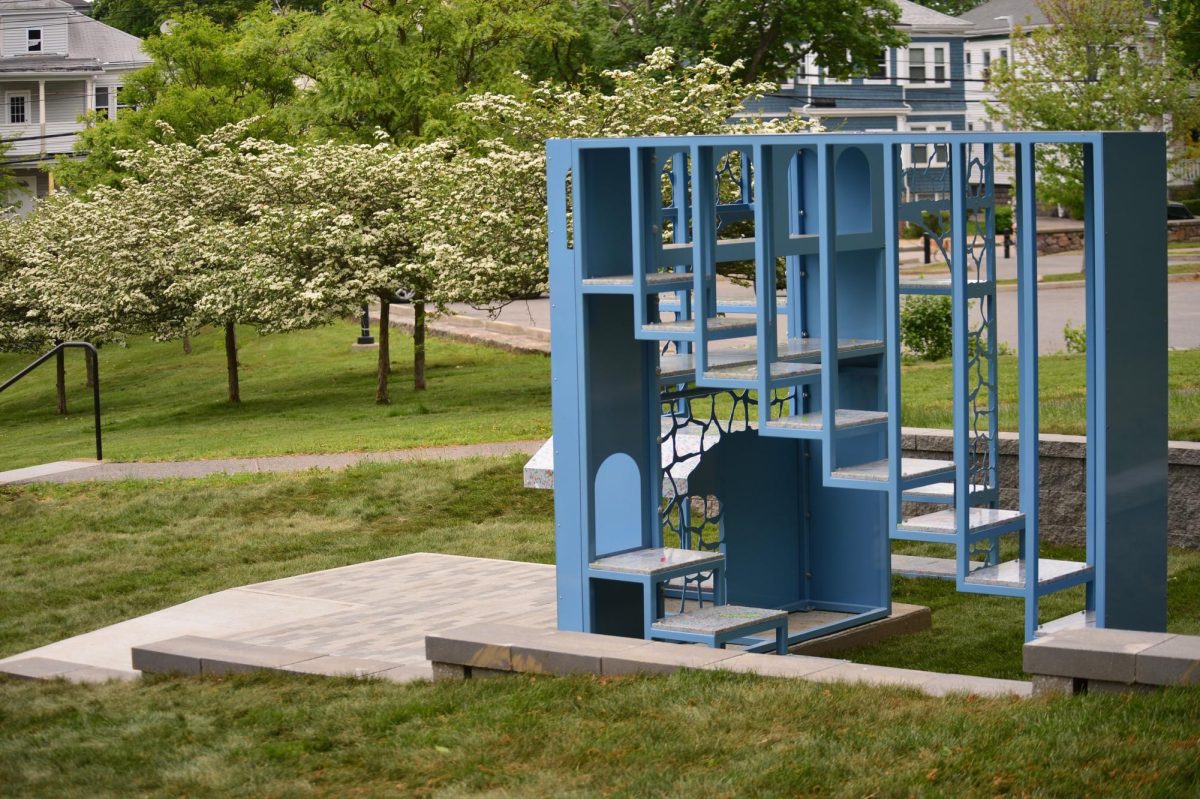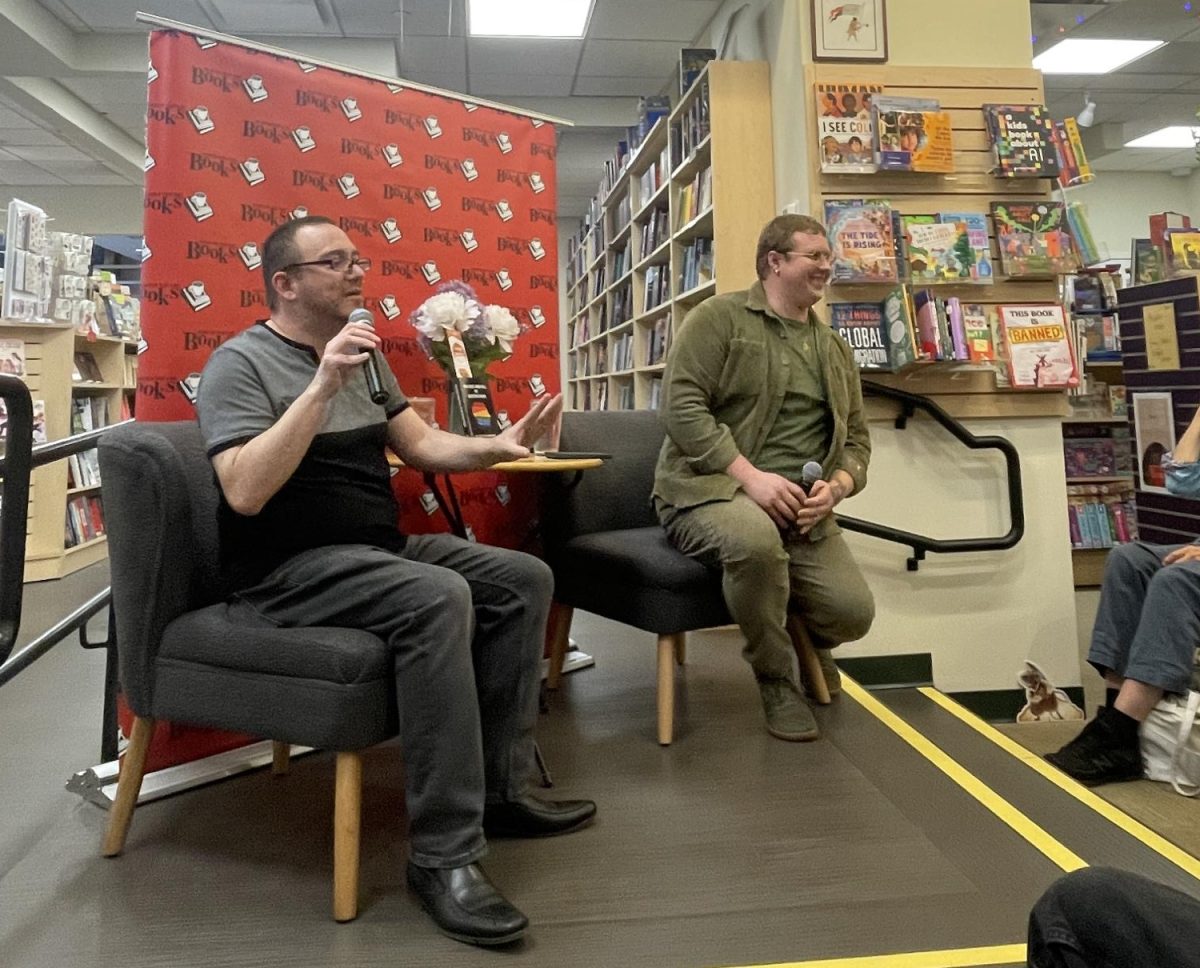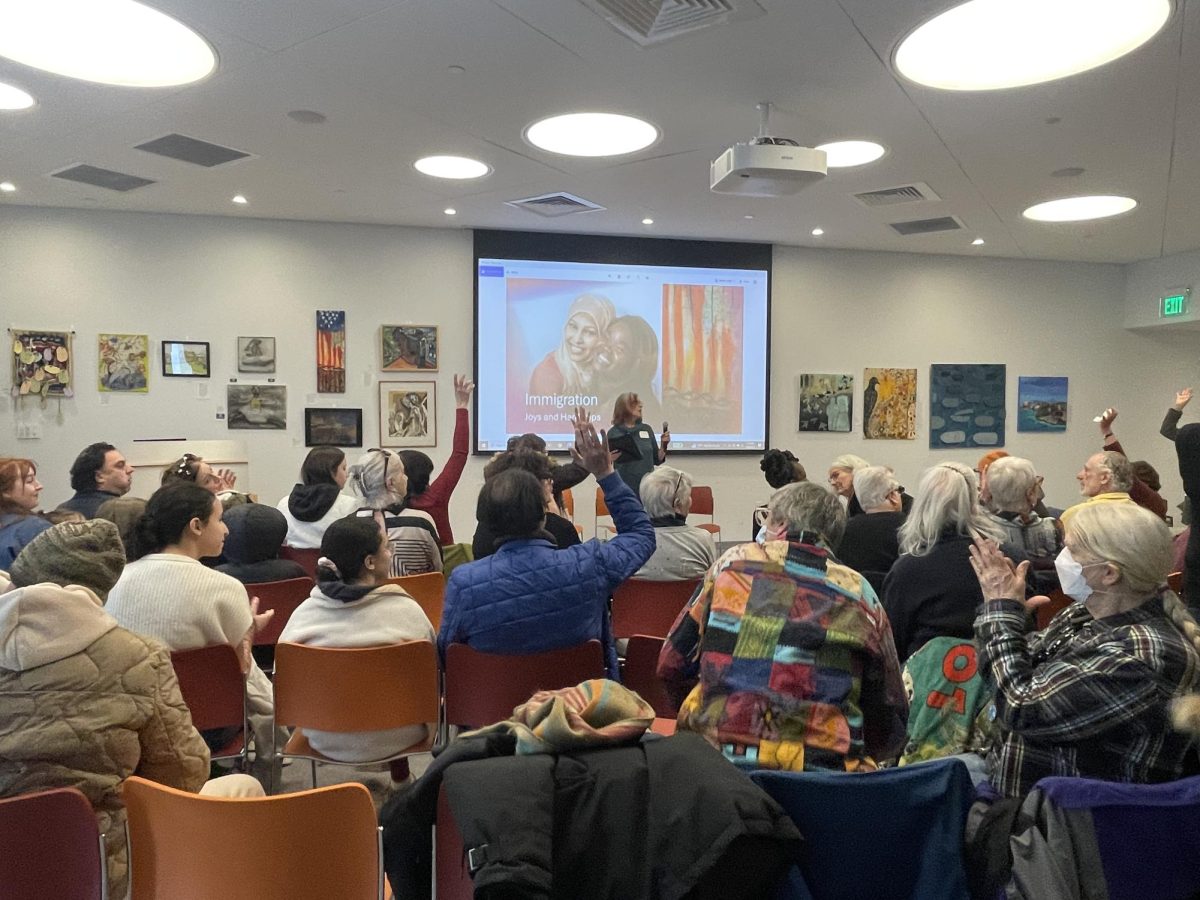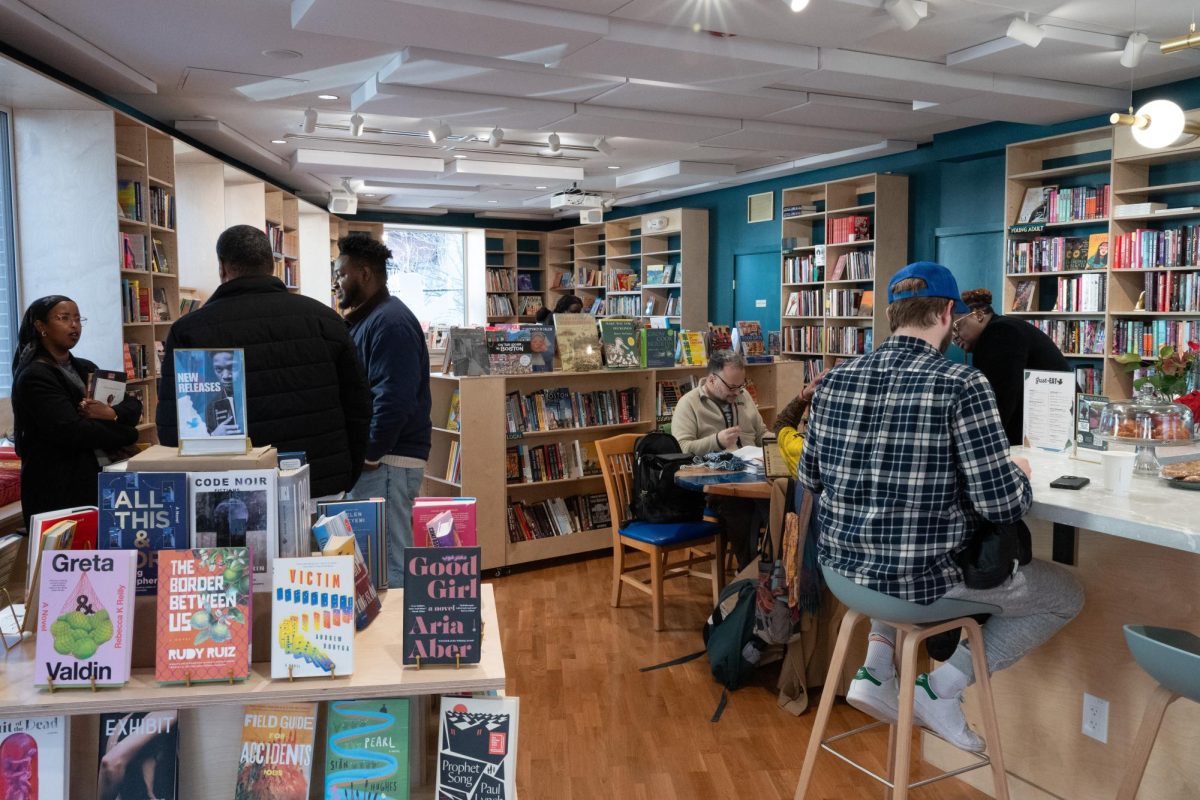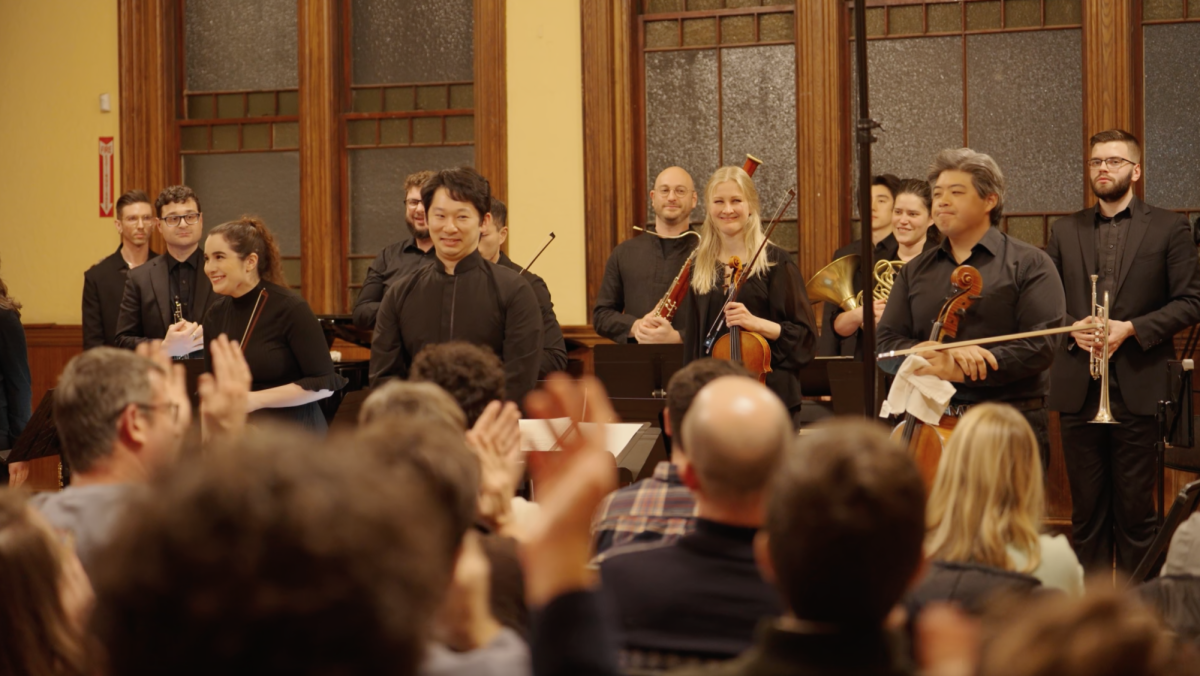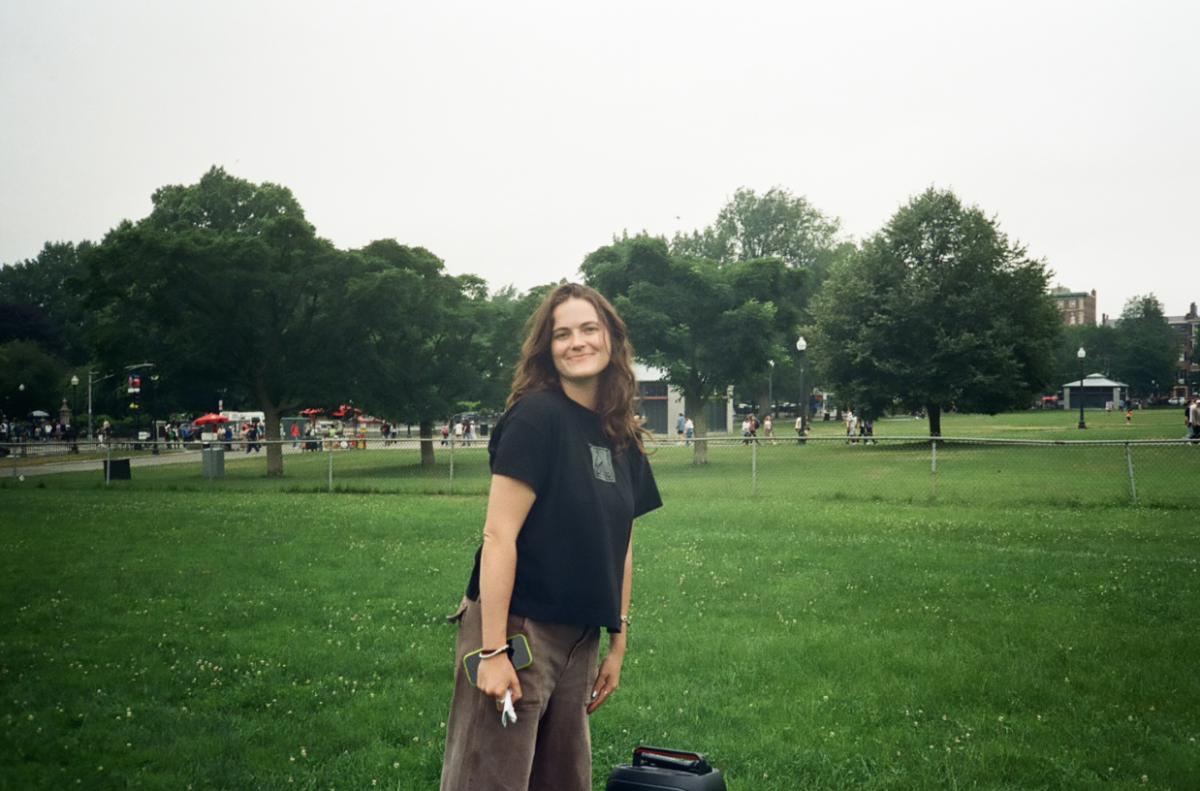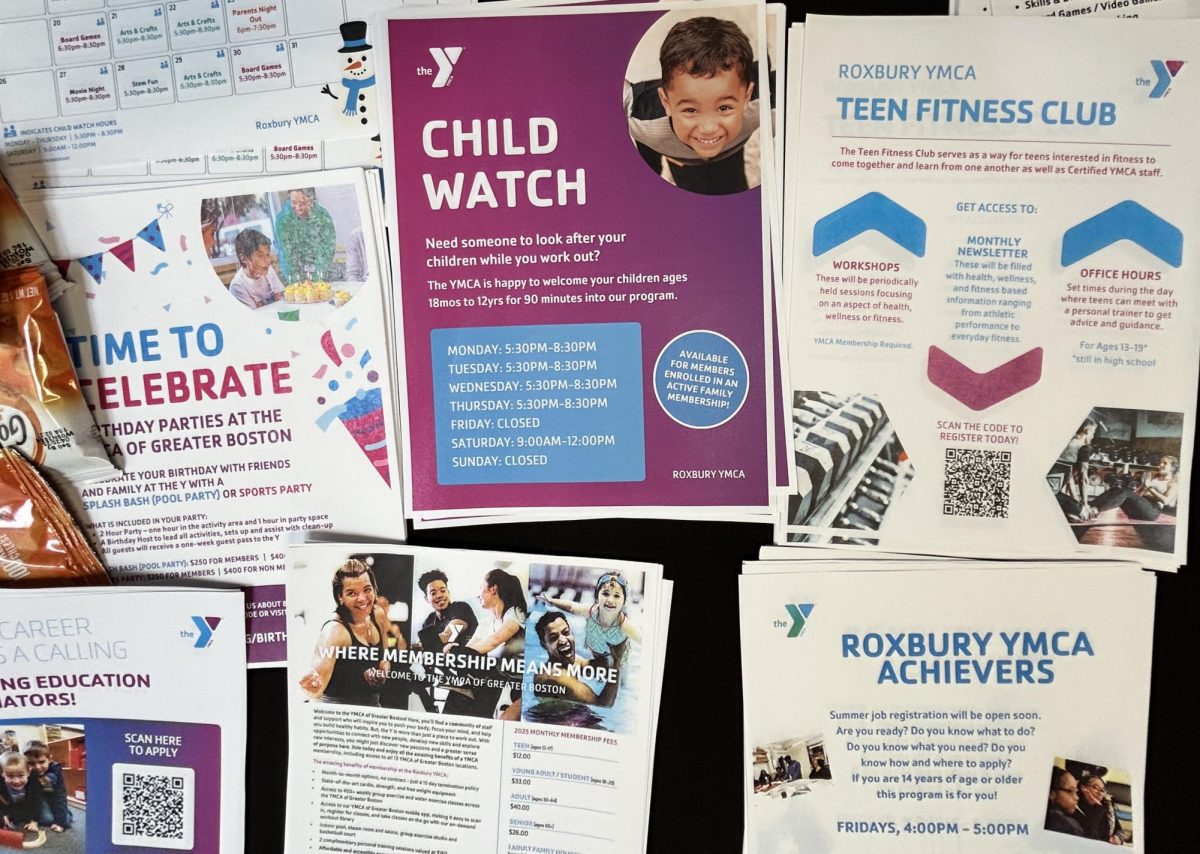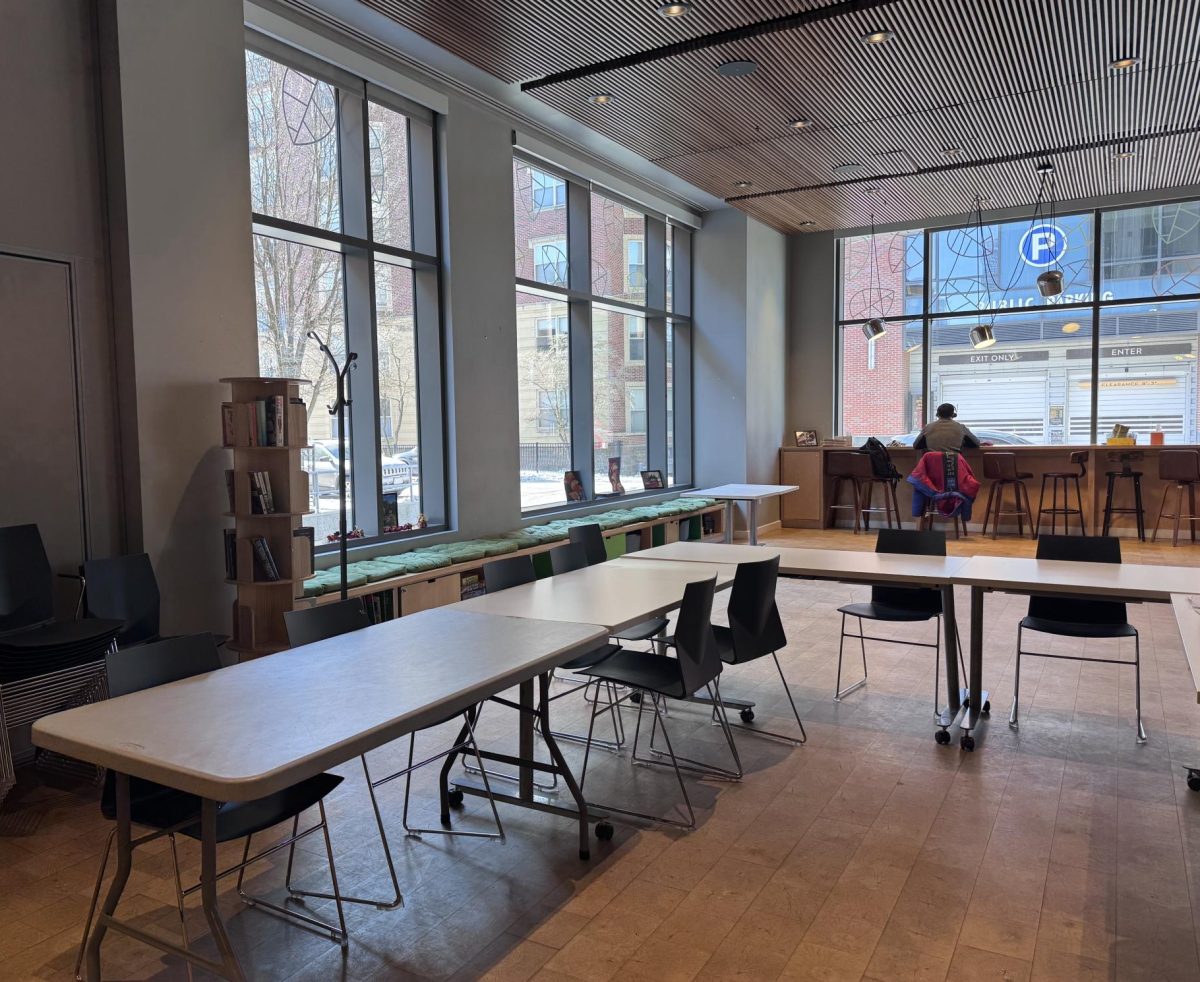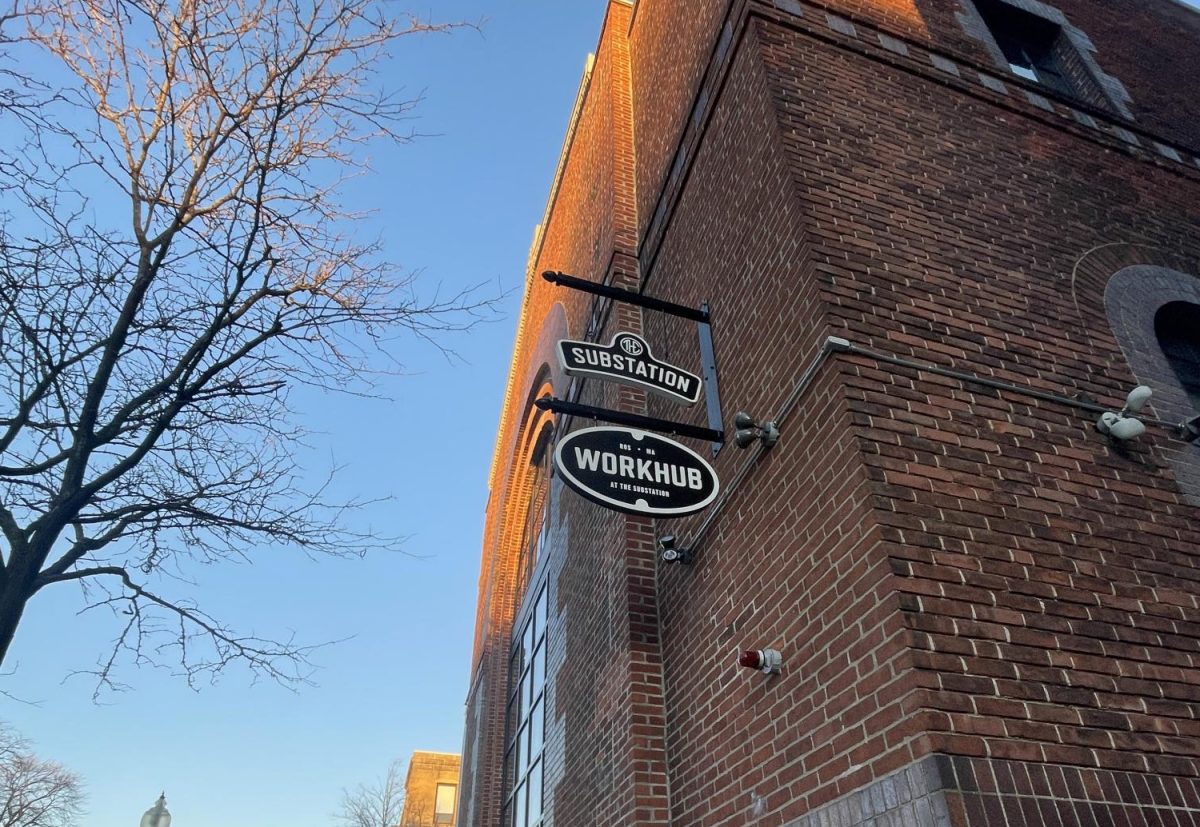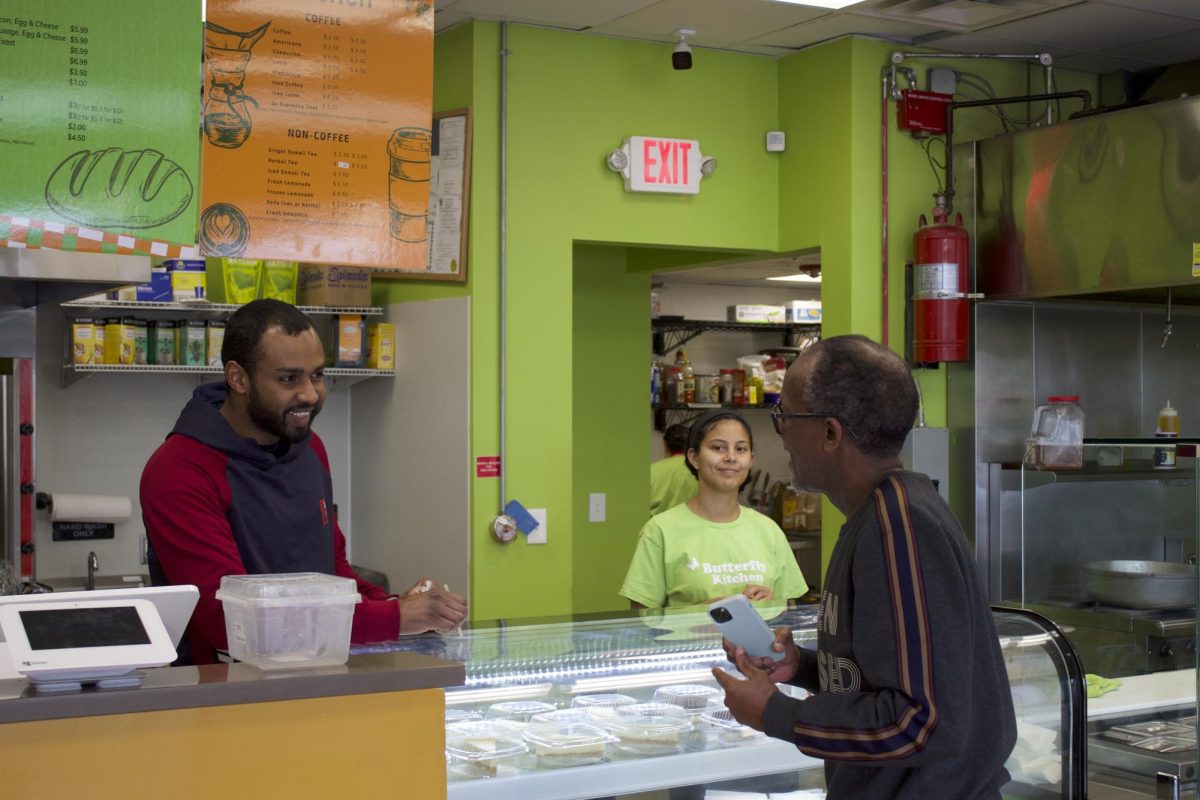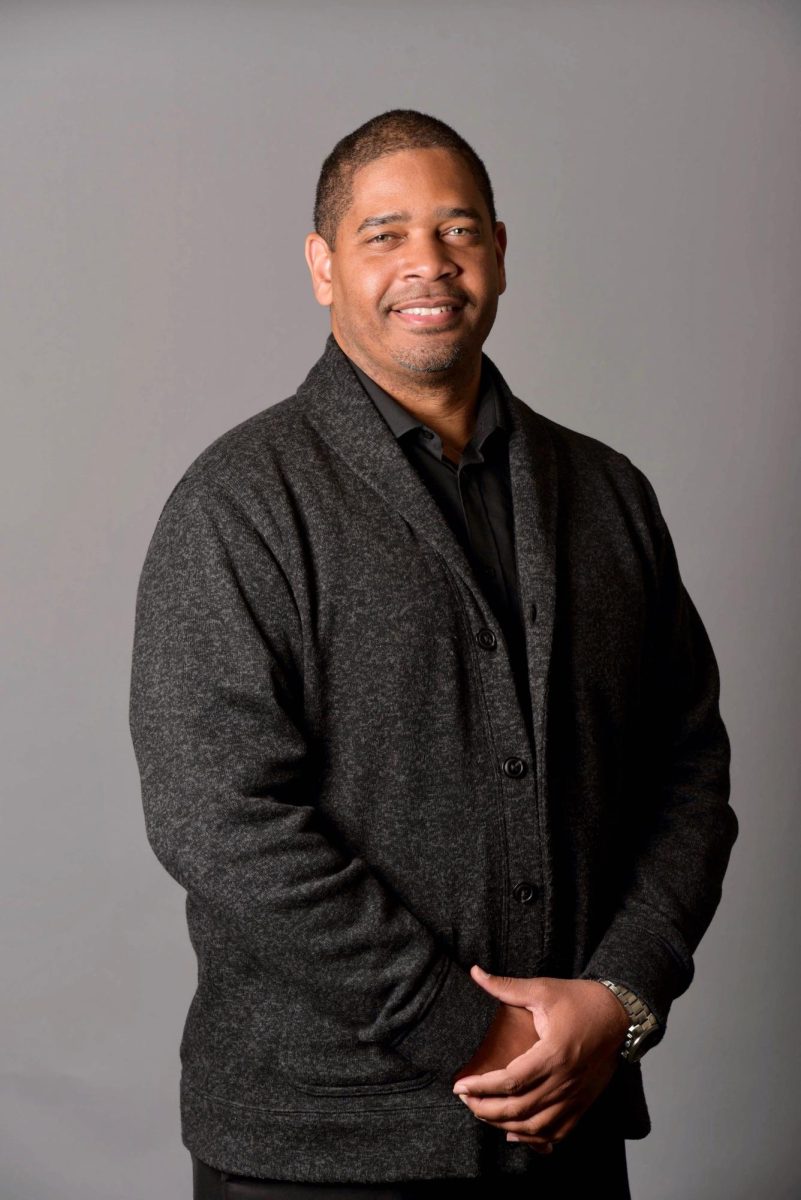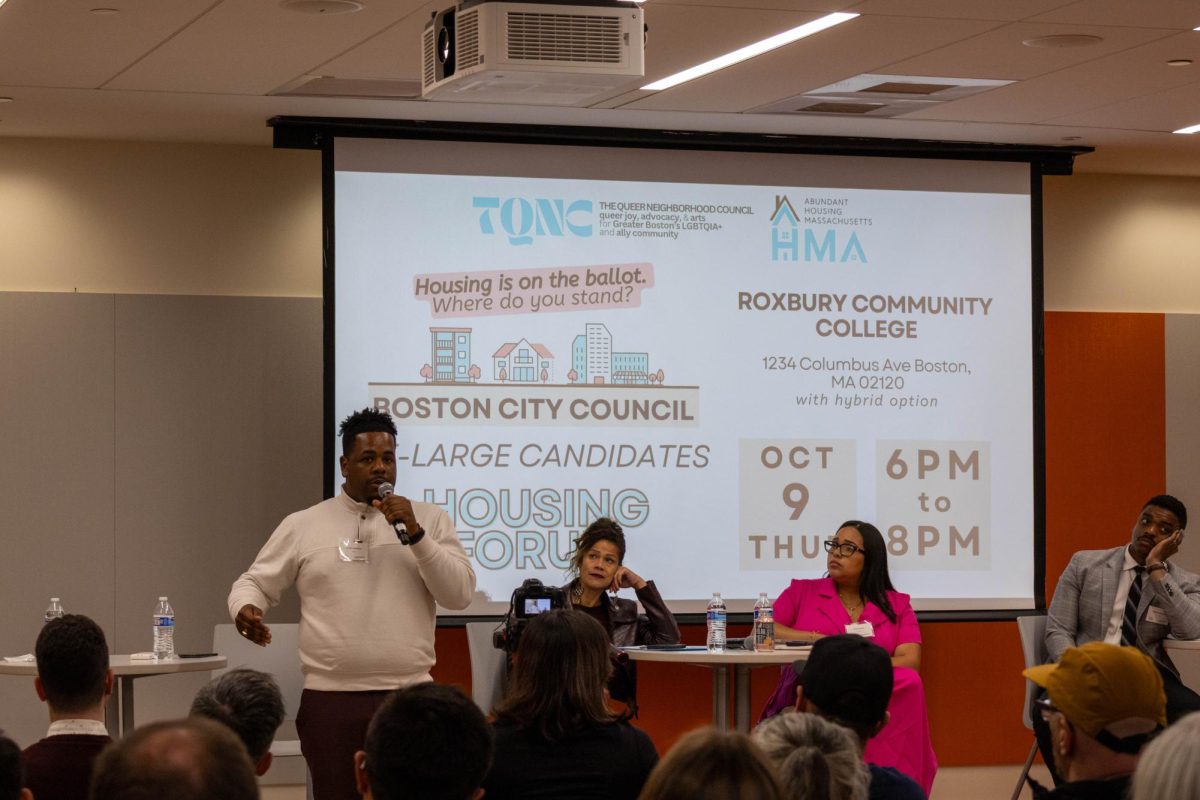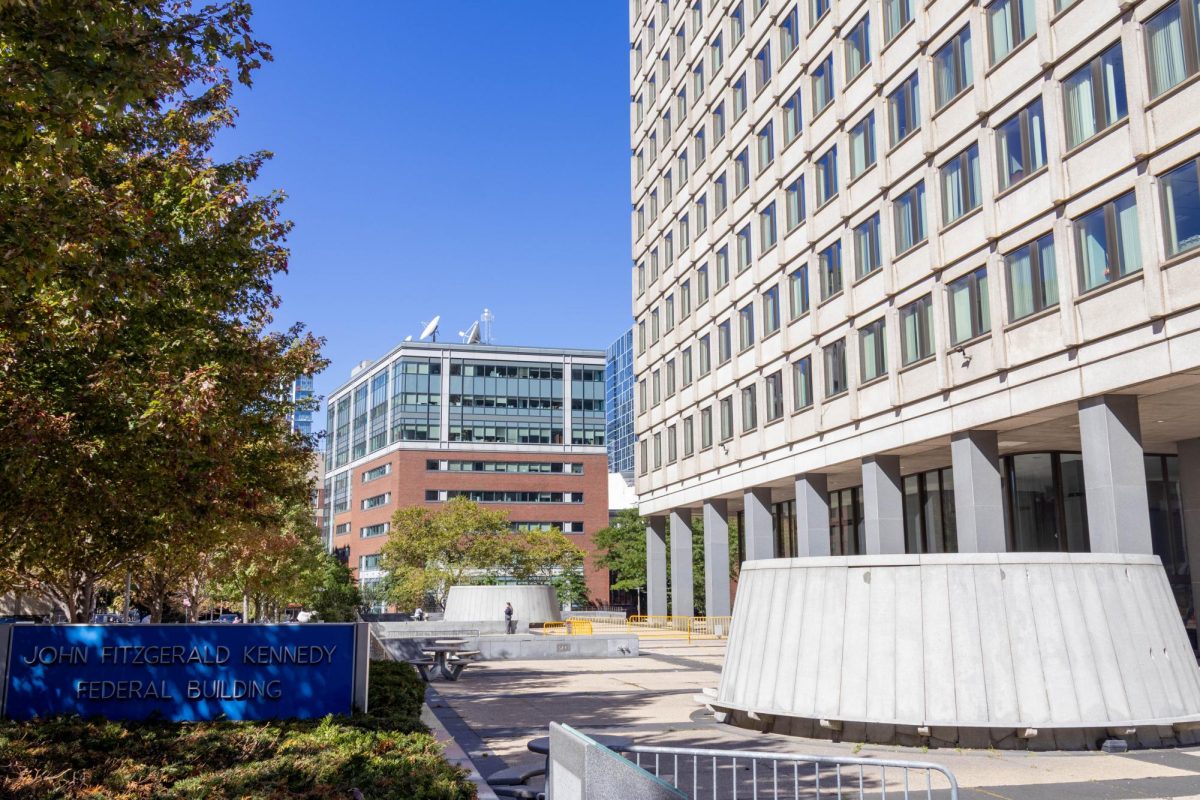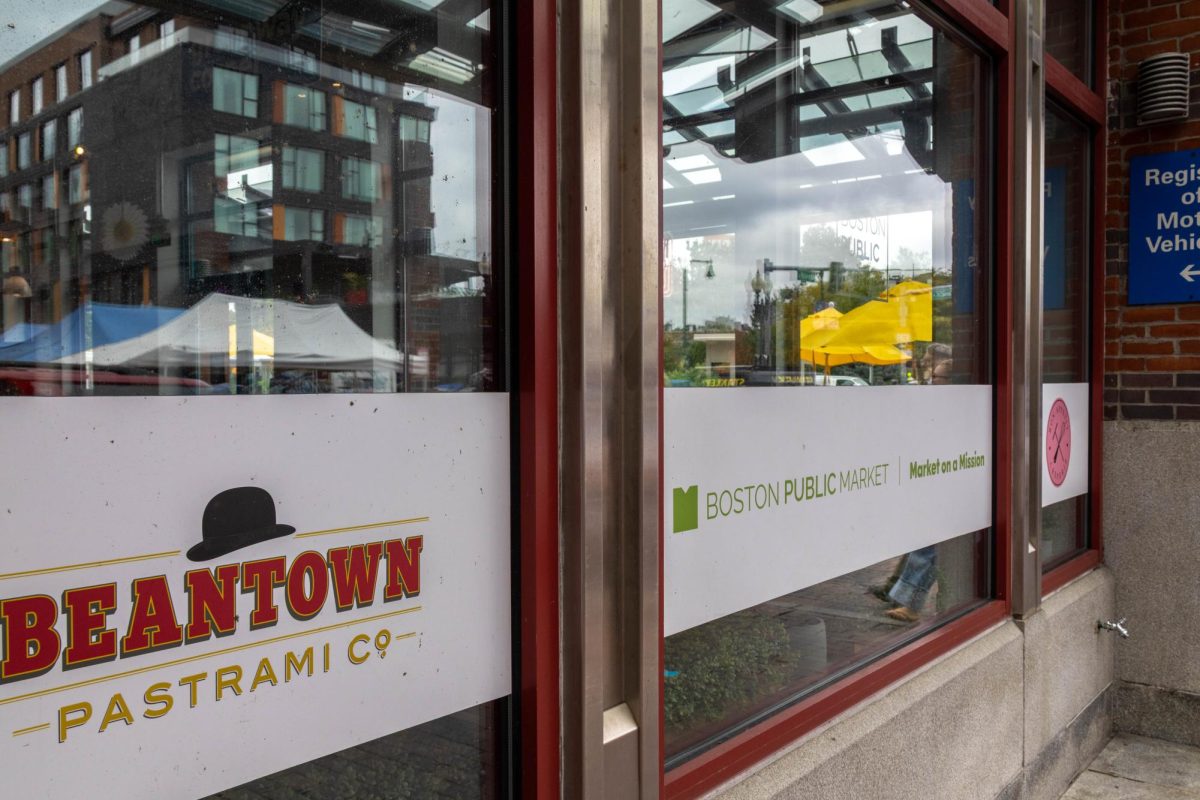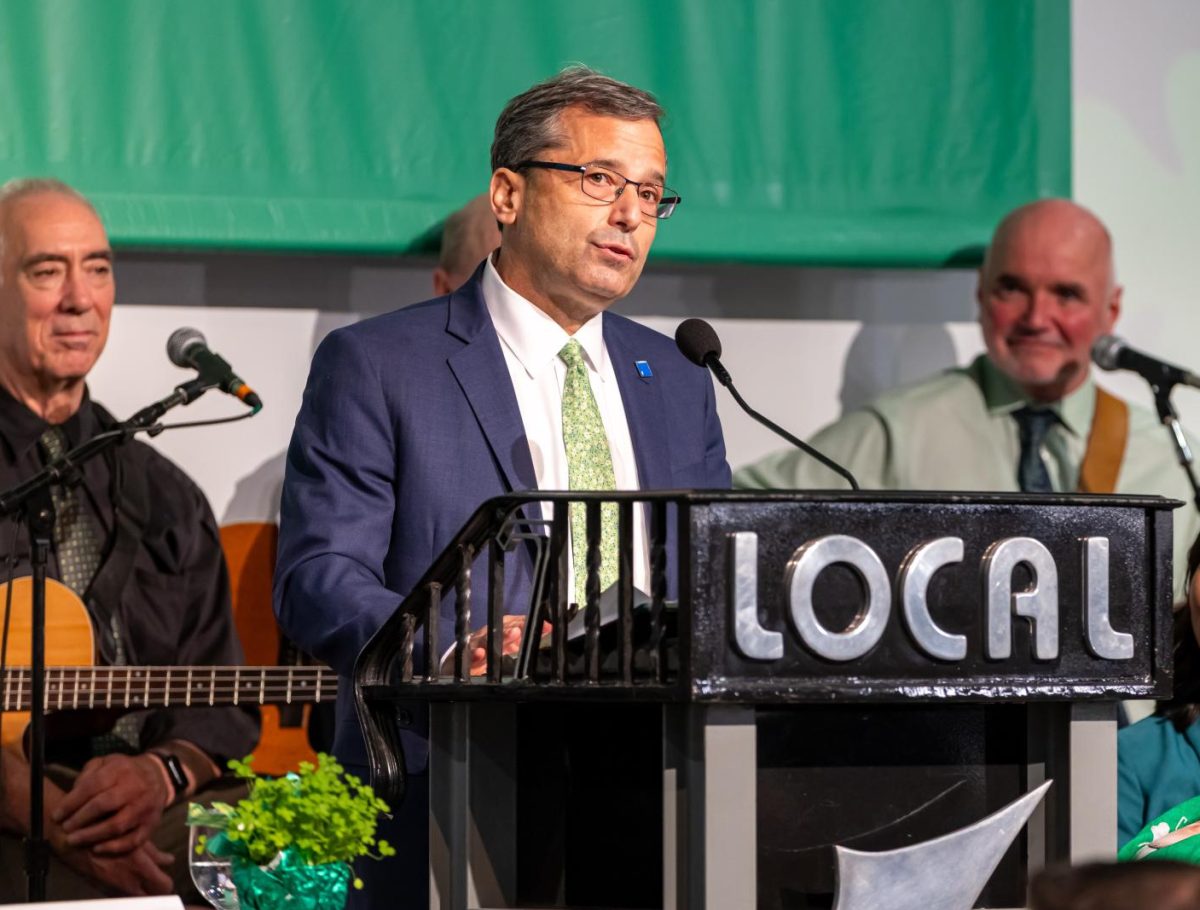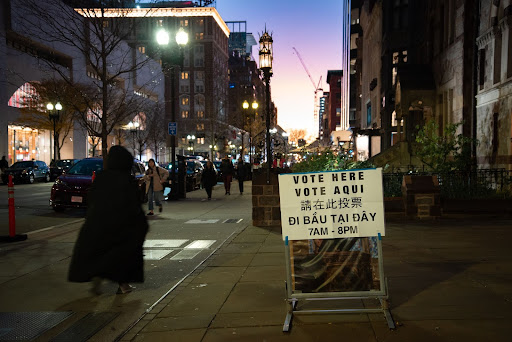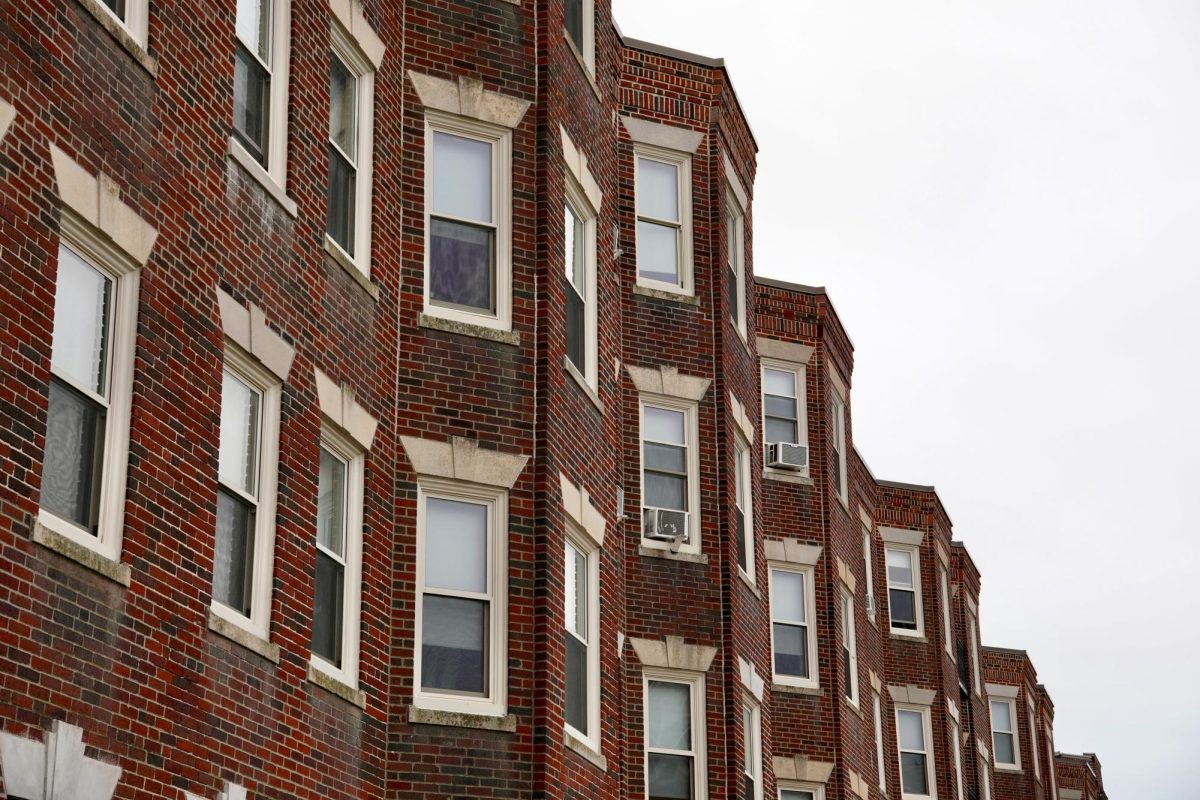The Boston Palestine Film Festival (BPFF), which features Palestinian filmmakers and runs for 10 days every October, will be fully in person again after a year of changes following the outbreak of the war in Gaza. Due to a combination of security concerns and the grief felt by the local Palestinian community after Israel’s counterattack began on Oct. 7, 2023, a week before last year’s festival’s start, a decision was made to show the films online only.
But in January of 2024, a limited return to in-person programming at the Museum of Fine Arts and the Massachusetts College of Art and Design demonstrated an appetite for returning to business as usual. The opening night film sold out quickly and the following two films were almost at capacity, which rarely happens, said longtime festival volunteer Michael Maria, a Palestinian American whose family is from Bethlehem, West Bank. This year, the festival, which runs through Oct. 27, is in person only.
Maria, 50, has been involved in the film festival since its launch in 2007, moving from attendee to volunteer before joining the executive board in 2011. In 2016, he was appointed programming director, a position he has held since. For paid work, he is a director of pharmaceutical safety, but the BPFF has never been a mere side interest, even before this past year, which he says has been one of the hardest for the Palestinian territory’s vast diaspora.
“It’s our own [form] of artistic expression, and it’s another element of resistance through existence, essentially,” he said.
The Scope met with Maria at the Square Root café, near his home in Roslindale. There he spoke about what the BPFF means to him, the effort that goes into selecting films and how the events of Oct. 7 continue to reverberate through Boston’s Palestinian community.
This interview has been edited and condensed for clarity.
Q: How did you get involved with the film festival?
I’m Palestinian American by background, so I’ve always been interested in the Palestinian story and Palestinian narrative in general, even before the festival existed — just [looking for] ways to tap into that as a Palestinian American, because I [was] born and raised here and [wanted] a way to keep in touch with my roots and heritage, beyond just trips back to Palestine, which I’ve done a handful of times, but it’s been a very long time. So [I’m] looking for local things that I can engage myself with to keep in touch with my Palestinian identity, and then also with the awareness of the extreme injustice of the occupation and the presence on the ground of the apartheid system and the real difficulty that Palestinians in general and also my family have lived through.
Q: Do you have a background in film?
I work in the pharma industry during the day, so I do all this on the side and you learn a lot when you just sort of apply yourself to a different area. It’s really my understanding of the power of the arts and the film to convey a message and really influence people quickly, which I’ve seen with my own experience watching films about subjects that I don’t necessarily know about and then really being moved by that really quickly and walking away from that changed, or at least having taken something that I didn’t know before. And I think film is especially powerful at doing that compared to other forms.
Q: What was it like when you first started getting really involved in the festival? What was the scale of it?
[The BPFF] always did university screenings, free screenings that were open to the public because accessibility was a huge goal of the fest. From the very beginning it was a multi-weekend, 10-day festival that was chock full of films every year, year after year. So honestly, I’ve never felt like the goal was to try and grow the festival. My goal was to sustain the festival and to grow audience, turnout and participation.
Q: Obviously a lot goes into this and pulling off something of this size doesn’t happen overnight. What does it take for a program director at a festival with a particular focus?
There’s two parts to the vetting process. There’s the research that I’m doing, and those are usually the high-profile films. I will proactively reach out to the distributors and the filmmakers and say, “Hey, can I get a screener of that?” Then we have a committee of people that are vetting the films and watching it and rating it because you want diverse perspectives. When you’re looking at a film, I might love something and you might hate it and you want, at the end of the day, to be picking films that resonate with the most people. And then we do a call for submissions every year where anyone can go and submit their film, and that is a really nice process because I can be really surprised by things that I wasn’t necessarily aware of that’s out there.
Q: Last year, you and the rest of the festival leadership made the decision to go remote after Oct. 7. How did that decision process go about?
We actually already had a virtual program and a live program ready to go. It took us a few days of really trying to assess what’s actually happening. Because you know, it’s a flurry of information upfront and understanding, “What happened on the Israeli side?” “What happened on the Palestinian side?” Immediately we started to see Israel’s response upon all of Gaza and the decision had to happen very quickly because our festival was going to open Oct. 13. It wasn’t a black and white decision, but I think it was the right decision based on how everything unfolded.
Q: When the decision was made to pivot to a remote lineup, what was the reaction of the venues that you had lined up?
The message they gave to us was, “This is your decision, and we will be supportive of you, whatever direction you go in.” But when we made the decision to postpone, I think there was this collective sigh of relief from the venues that they weren’t going to have to deal with it. I think they were very happy that we made that decision.
Q: When the postponement decision was made, there was also talk of security concerns. Were these actual threats made to venues?
Every year there’s people that put pressure on our venues because they don’t want the festival to exist. So even without Oct. 7 happening, [venues] would hear this message. It never has any traction, but I’d say it was amplified afterward, like especially in our run up to [the January screenings]. It’s basically some loud voices accusing the films of being anti-semitic, which they’re not.
Q: You said that the turnout in January was beyond what you and your team were expecting. What were you expecting?
It was really unpredictable because you don’t know what people’s mental state is at the time. Do they want to drive themselves out of the house in January to go to the movies? But then even just psychologically, are they too depressed, too overwhelmed? But we sold out that opening night film really quickly and then we were almost at full capacity with the other two films, which rarely happens. So it just really spoke to people’s desire to go out.
Q: In the year since Oct. 7, there’s been a worldwide youth protest which has erupted in support of Palestine and it’s been particularly potent here in Boston, where there are so many universities and such a young population. Have you seen any of the messages from the festival overlapping with the movement?
There’s a bit of a distinction between the activist and the protest circles and [us]. We put ourselves in that art and culture space. Now obviously there is clear overlap because the arts and the culture work off the same material that the activists and the protests are working off. It’s basically the occupation and the apartheid and the trauma feeds into each and every Palestinians’ day-to-day life, and that’s what informs their stories and their filmmaking and their artwork. And that’s what we end up presenting. But then that information can be used to motivate action, motivate activists, motivate protests because they are intertwined.
Q: Now that the festival is back in person, is there still a remote element?
It’s fully in person. We dropped the remote piece, which I feel bad about. I wanted to have the virtual element too. It’s bandwidth. We’re a small team, all volunteer. After this year and the mental exhaustion, [we] just wanted to focus on the live piece.
Q: Do you see any other ways in which Oct. 7 and the aftermath have impacted either the way the team works or just the general vibe going into the 2024 BPFF?
So, this has been the most difficult program for the team and for me to work on since I’ve been doing it and it’s because there is so much trauma happening in the background: What’s happening in Gaza, what’s happening in broader Palestine on a daily basis, the ineptitude of anybody to actually bring about real change … I’m hoping that we’re riding the wave that we started in January where we have a galvanized, energized community and that we get broad participation. I feel like a lot of people who weren’t aware or sensitive to or informed about the Palestinian situation under occupation before Oct. 7 are now.
Q: Is there anything in particular that you’re looking forward to in this festival?
We do have one particular film program that’s called “From Ground Zero” that’s screening at The Brattle [Theatre], and that’s a collection of short films that have come out of Gaza post-October 2023, and it was important to me and the team that we found a way to be relevant to the present day too and to honor those stories. We’re bringing that collection to The Brattle and then 50% of the proceeds from that screening we want to donate back to the Palestine Children’s Relief Fund or an aid agency that’s directly helping.
The Boston Palestine Film Festival runs through Oct. 27. A full listing of events can be found here: https://bostonpalestinefilmfest.org. “From Ground Zero” screens at The Brattle Theatre in Harvard Square on Thursday, Oct. 24, at 6:00pm.


